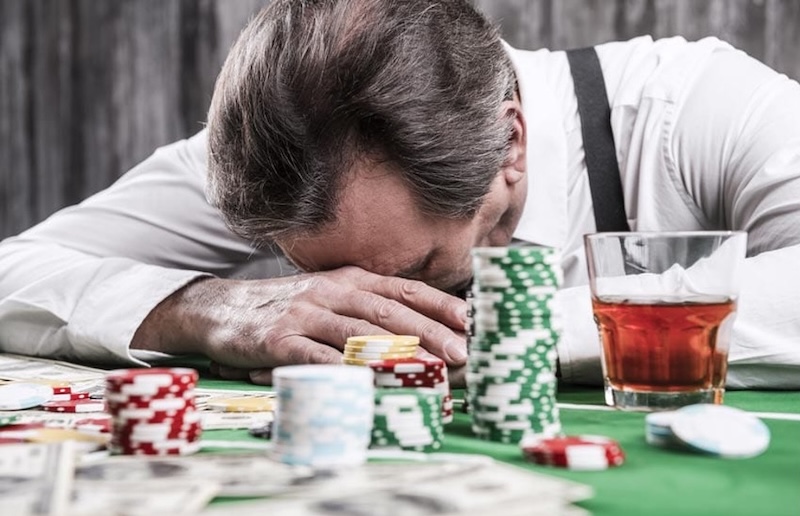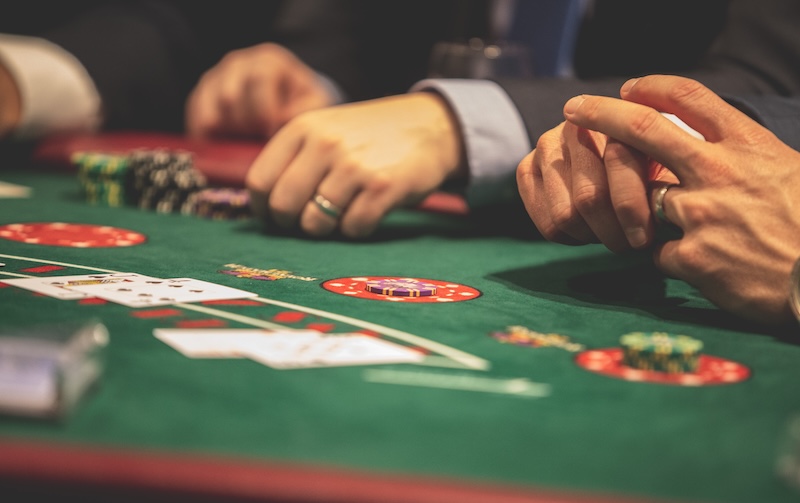Early Signs You're on a Path to Excessive Gambling

While gambling can be an enjoyable pastime for many, there are times when the line between casual fun and a serious problem becomes blurred.
Recognizing early indicators of excessive gambling can ensure that a harmless hobby doesn't escalate into a full-blown issue.
Here are warning signs that one might be veering toward problematic gambling behavior:
1. Chasing Losses
One of the most telling signs of a developing gambling problem is the act of "chasing losses." This refers to the pattern where an individual becomes increasingly determined to recover their money by continuing to gamble after experiencing a loss.
The belief that one is just "one bet away" from recuperating losses can drive a person to gamble beyond their means, leading to a vicious cycle. This behavior, spurred by hope, desperation, and cognitive biases, is a warning sign.
Recognizing this pattern is important because it helps us understand how gambling addiction starts. It also reminds us that getting help early on is really important.

2. Increasing Time and Money Spent
An increase in the frequency or amount of gambling over time is often a covert indication of a developing addiction.
Although gambling begins as a casual hobby that one does on occasion for fun, it has the potential to quickly become an obsession that takes a significant portion of an individual's time and resources. As this fixation continues to develop, it is possible that other aspects of life that are important can begin to take a back seat.
The blurring of self-imposed limitations in time and money is a significant signal that gambling is no longer only a leisure pastime for someone. Ignoring or downplaying this transition can have severe repercussions, impacting one's well-being and relationships with others.
3. Growing Secrecy and Defensiveness
It's common for people to try to hide their gambling habits and the impact of it from their loved ones as a symptom of developing concern about their conduct. This secretive behavior can be rooted in an individual's anxiety over the opinions, concerns, or criticisms of people closest to them.
As the cloud of secrecy becomes thicker, it can increase stress levels and feelings of isolation, and , damage relationships. The person can start making up intricate tales or coming up with reasons to justify their absences or the loss of money. This false web can get more complicated over time, leading to increased worry and the possibility of conflicts if contradictions appear.

4. Borrowing Money or Selling Assets
As the pressure on the individual's finances increases, they can find themselves caught in a vicious cycle of gambling to recoup losses, only to incur even more debt due to their gambling. This can result in an emotional toll, including feelings of humiliation and remorse and a growing sense of desperation.
As loved ones become aware of the anomalies in the financial situation or are explicitly requested for loans, relationships can become strained. The person's credit score may drop, leading to more financial issues. Over time, this financially irresponsible conduct can lead to significant repercussions, such as bankruptcy or legal troubles, further emphasizing the need for involvement and help.
5. Withdrawal from Social or Family Life
As the absence of social interactions can create a void within someone, the isolation often exacerbates the gambling problem even more. By distancing themselves, the individual can believe they're shielding their loved ones from the repercussions of their actions, not realizing that this withdrawal can cause further worry and strain on relationships.
As the emotional and social gap widens, feelings of loneliness and depression can set in, further driving the person towards gambling to cope or find temporary relief. Ultimately, the combination of emotional distress and isolation can form a detrimental cycle that, if not addressed, can have lasting consequences on an individual's mental well-being and social connections.
Conclusion
It's vital to approach gambling with awareness and caution. By recognizing these early warning signs, individuals can take proactive measures to assess their habits, seek guidance, or even obtain professional help.
A balanced, informed approach ensures one can enjoy recreational activities without inadvertently descending into problematic behavior.




















